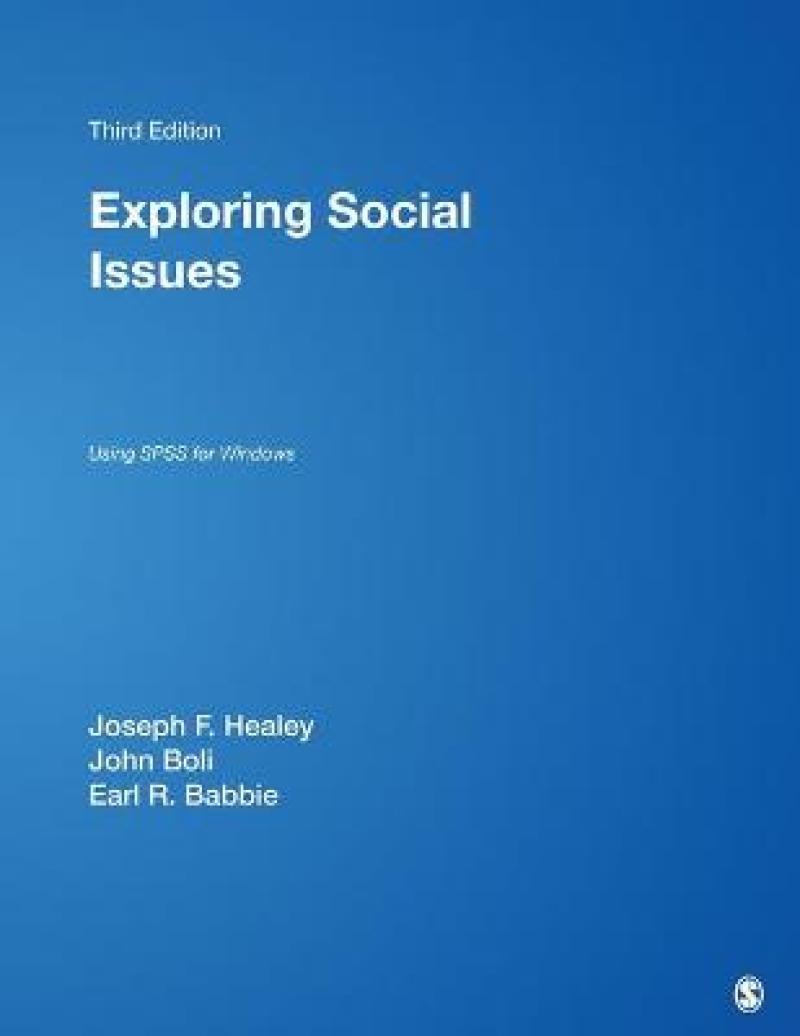A hands-on introduction to the craft of social research for Introductory Sociology courses, Exploring Social Issues: Using SPSS for Windows, Third Edition puts students in the role of active researchers as they test their own ideas about topics such as divorce, abortion, crime, inequality, prejudice, and television violence using SPSS, the pre-eminent software program in the social sciences.
This Third Edition uses updated General Social Survey (GSS) data sets and offers a robust SPSS primer in an appendix. The book is available in two formats: as a stand-alone text, or bundled with SPSS (Student Version).
Key Features
This Third Edition uses updated General Social Survey (GSS) data sets and offers a robust SPSS primer in an appendix. The book is available in two formats: as a stand-alone text, or bundled with SPSS (Student Version).
Key Features
- Stresses active and collaborative learning as students engage in a series of investigative explorations of social issues
- Shows students how analyzing data from the General Social Survey, a major national research program, can help them better understand compelling social issues
- Teaches students how to use SPSS as they analyze GSS data on a random sample of the population
- Guides students step-by-step through exercises that have been designed for those with no background in SPSS
- Includes research reports that follow a standardized fill-in-the-blank format for analyzing and presenting results, but with space left for students to summarize their results in their own words
Exploring Social Issues: Using SPSS for Windows, Third Edition can be effectively used in Introductory Sociology or other undergraduate sociology courses and may be used in conjunction with most of the standard textbooks in the field. The text is ideal for courses where the professor also wants to introduce students to doing social research and using SPSS.
Data sets available online! Click on ′Sample Materials and Chapters′ on the left hand menu bar. These data sets provide historical depth, and allow students to analyze trends over time by comparing 2006 results and patterns with data from the 1972 General Social Survey.
Les mer
This workbook is a practical introduction to the skill of social research. It is intended for use in introductory sociology courses and may be combined with most of the standard textbooks in the field.
Les mer
1. Getting Started: Social Research, Data Sets, and Frequency Distributions
2. Theory and Research: The Scientific Method
3. Describing the Sample, Types of Variables, and Data Sets
4. Culture: What Do Americans Value?
5. A Controversy in Values: Attitudes About Abortion
6. Socialization: What Kinds of Children Do Americans Want?
7. Crime: Fear, Law Enforcement, and Punishment
8. Inequality and Social Class in the United States
9. Inequality and Gender
10. Inequality and Race
11. The Family Institution: Forms and Functions
12. The Political Institution in the United States: Support for Civil Liberties, Presidential Choice, and the Gender Gap
Appendix A: Variable Names, Item Wordings, and Codes for All Data Sets
Appendix B: SPSS Commands Used in This Book
Answers to Selected Exercises
Glossary of Key Concepts
Les mer
Produktdetaljer
ISBN
9781412964210
Publisert
2009-04-30
Utgave
3. utgave
Utgiver
Vendor
SAGE Publications Inc
Vekt
950 gr
Høyde
279 mm
Bredde
215 mm
Aldersnivå
UU, 05
Språk
Product language
Engelsk
Format
Product format
Heftet
Antall sider
376
